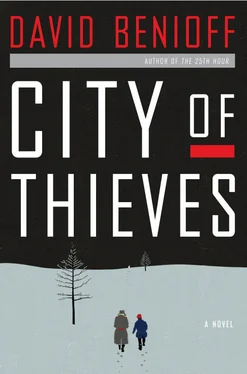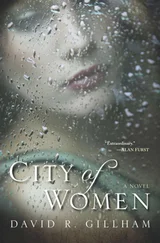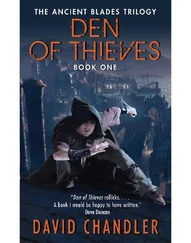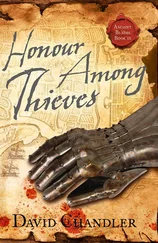Kolya glanced at the empty nesting boxes.
“I think it’s all right now. Come on, there are some nice girls downstairs, they’ll give you some soup, some water to drink.”
“I’m not hungry,” said the boy, and I knew he was doomed.
“Come with us anyway,” I said. “It’s too cold in here. We’ll warm you up, get you a little water.”
“I have to watch the birds.”
“The birds are gone,” said Kolya.
“Not all of them.”
I doubted the boy would last until tomorrow, but I didn’t want him to die here, alone with the bearded corpse and the empty nesting boxes. The dead were everywhere in Piter: stacked in great heaps behind the city morgue; burned in the fire pits outside the Piskarevsky Cemetery; scattered across the ice of Lake Ladoga, something for the seagulls to pick at, if there were still seagulls. But this was a lonelier place to quit than anywhere else I’d seen.
“Look,” said Kolya, shaking one of the empty nesting boxes. “Nobody home. You were a good watchman, you protected the birds, but they’re gone now. Come with us.”
He extended his gloved hand, but the boy ignored it.
“Ruslan would have shot you.”
“Ruslan?” Kolya glanced at the old man’s body. “Ruslan was a fierce old fellow, eh? I can tell. I’m glad you’re the peaceful sort.”
“He told me everyone in the building wanted our birds.”
“He was right.”
“He said they’d come up here and slit our throats if we let them. Steal our birds and boil them for soup. So one of us always had to stay awake, hold the shotgun.”
The boy spoke in a monotone, never looking at us, his eyes vague and unfocused. I could see now that he was trembling, his teeth clacking together when he wasn’t speaking. Patches of light brown down spread across his cheeks and neck, his body’s last effort to insulate itself.
“He told me they’d keep us alive till the siege was over. Couple of eggs a day, that and the rations would do us. But we couldn’t keep them warm enough.”
“You need to forget about the damn chickens. Come on, give me your hand.”
The boy continued to ignore Kolya’s outstretched hand and finally Kolya motioned for me to help him. But I had seen something, a movement where there shouldn’t be movement, a stirring beneath the boy’s fur coat, as if his giant heart were beating so loud its thump was visible.
“What do you have there?” I asked.
The boy stroked the front of his fur coat, calming whatever lay beneath. For the first time the boy’s eyes met mine. Weak as he was, millimeters from the finish line, I could see the toughness in him, the stubborn will he inherited from the old man.
“Ruslan would have shot you.”
“Yes, yes, you keep saying that. You saved one of the birds, didn’t you? That’s the last one.” Kolya looked at me. “How many eggs can a chicken lay in a day?”
“What the hell do I know?”
“Listen, boy, I’ll give you three hundred rubles for that bird.”
“People used to offer us a thousand. He always said no. The birds can keep us alive all winter, he said. What are we going to do with rubles?”
“Buy yourself some food? That bird’s going to die like all the others if you keep it here.”
The boy shook his head. All the talking had wearied him and his eyelids drifted lower.
“All right, how about this? Here, give me that,” Kolya said to me, snatching the library candy from my hand. He added it to his last sliver of sausage and the three hundred rubles and placed them all in the boy’s lap.
“That’s everything we have. Now, listen to me. You’re going to die here tonight if you don’t move. You need to eat and you need to get off the roof. We’re going to bring you down to those girls on the fifth floor—”
“I don’t like them.”
“You don’t have to marry them. We’re going to give them this money and they’ll feed you some soup and let you stay a few nights, get your strength back.”
The boy didn’t have the energy for more than the slightest of head shakes, but his meaning was clear. He wasn’t leaving.
“You’re staying here to protect the bird? What the hell are you going to feed it?”
“I’m staying for Ruslan.”
“Let the dead bury the dead. You’re coming with us.”
The boy began to unbutton his coat. He held the brown-feathered bird against his chest like a suckling newborn. It was the saddest little chicken I’ve ever seen, bedraggled and dazed. A healthy sparrow would have torn it apart in a street fight.
He held the chicken out to Kolya, who stared at it, unsure what to do or say.
“Take it,” said the boy.
Kolya looked at me and then back to the boy. I had never seen him so confused.
“I couldn’t keep them alive,” said the boy. “We had sixteen in October. And this is all that’s left.”
We had wanted the chicken so badly, but now that the boy was offering it for free something seemed wrong.
“Take it,” said the boy. “I’m tired of them.”
Kolya took the chicken from the boy’s hands, holding the bird away from his face, worried she might claw at his eyes with her hook-nailed feet. But the chicken had no violence in her. She sat limp in Kolya’s palms, trembling in the cold, staring dully at nothing at all.
“Keep it warm,” said the boy.
Kolya opened his coat and slipped the bird inside, where she could bundle between layers of wool and still find space to breathe.
“Now go away,” said the boy.
“Come with us,” I said, one last effort though I knew it was useless. “You shouldn’t be alone right now.”
“I’m not alone. Go away.”
I looked at Kolya and he nodded. We headed for the crooked door. On the way out, I turned and glanced back at the boy, sitting there silently in his woman’s coat.
“What’s your name?”
“Vadim.”
“Thank you, Vadim.”
The boy nodded, his eyes too blue, too large for his pale, gaunt face.
We left him alone in the chicken coop with the dead old man and the empty nesting boxes, the wick burning low in the lamp, three hundred rubles and the unwanted food on his rabbit fur lap.
Sonya had collected a basket of wood chips from the splintered roof beams of a bomb-blasted nursing school on Vasilevsky Island; her stove burned hot as we sat in front of it, drinking weak tea and staring at the feeble chicken. We had fashioned a makeshift nesting box from an old cookie tin and a bed of shredded newspaper. The chicken huddled there, head against her chest, ignoring the teaspoonful of ground millet we’d sprinkled on the scraps of editorial, Muscovites imploring us to stand strong. Fucking Moscow. The general feeling around Piter was that if the siege had to happen, better it happen to us, because we could survive anything, while the porcine bureaucrats in the capital would probably surrender to the nearest Oberstleutnant if they couldn’t get their weekly ration of sturgeon. “They’re as bad as the French,” Oleg used to say, though even Oleg knew that was going too far.
Kolya had nicknamed the chicken Darling, but there was no affection in her eyes as she stared back at us, stupid and suspicious.
“Doesn’t she have to have sex before she lays eggs?” I asked.
“I don’t think so,” said Sonya, picking at a crust of dried skin on her lip. “I think the males fertilize the eggs, but she lays them on her own. My uncle manages a poultry collective in Mga.”
“So you know about chickens?”
She shook her head. “I’ve never even been to Mga.”
We were all children of the city. I had never milked a cow or shoveled manure or baled hay. Back in the Kirov we always made fun of the peasants from the collectives, their bad haircuts and freckled necks. Now the country folk were having their laugh, feasting on fresh-killed rabbit and boar while we tried to survive on moldy ration bread.
Читать дальше












